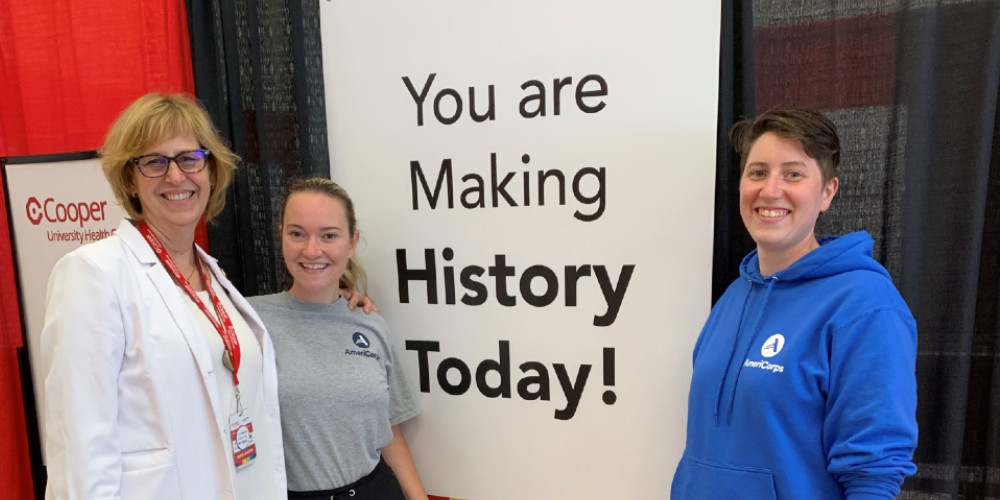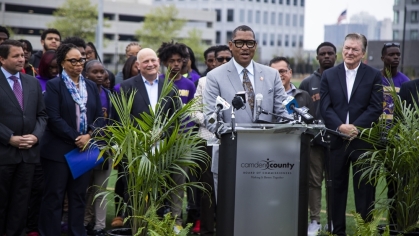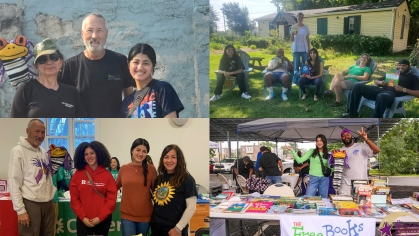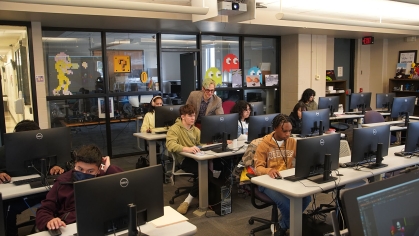Community Health Care Program also Studies Social Determinants of Health to Help Improve Residents’ Well-Being

Rutgers University‒Camden students are providing COVID-19 vaccinations and health services to Camden residents while studying the social determinants of health to find solutions to help improve health care for city dwellers.
According to the United States Census Bureau, 1 in 10 people live in poverty and many people cannot afford necessities such as healthy food, health care, and housing.
For many Camden residents, social inequities, systemic racism, and poverty affect their health and access to health care.
“When nursing students understand the root causes of social determinants of health, and the impact of these determinants such as lack of access to care, unstable housing, food insecurity, unsafe neighborhoods, and lack of reliable transportation, they can better address patients’ health care priorities and well-being,” says Donna Nickitas, dean of the Rutgers School of Nursing‒Camden.
Through a grant from the New Jersey COVID-19 Service Corps (NJCSC), Rutgers‒Camden is participating in a project with Montclair State University to bring together emerging public health and allied health professions to provide support to communities as part of the AmeriCorps national program.

Donna Nickitas, Dean of Rutgers School of Nursing–Camden
Based at the Rutgers‒Camden health center at the Branches at Centerville, eight senior Rutgers School of Nursing‒Camden students will provide vaccine education, administer vaccines, and study how social issues such as poverty, unemployment, and lack of child care affect residents’ ability to live healthy lives and access health care services.
“Hopefully, we can begin to address the stark inequities that have contributed to the pandemic’s disproportionate impact on this community,” says Rebecca Bryan, the director of community engagement and professional development, the supervisor of the students, and the clinical instructor of the program.
During the seven-month program from September to April, the students will receive credit for 300 clinical hours, get a $2,665 stipend for living expenses, and collect a $1,343 education award that can be used to cover the cost of future education or to pay off federal student loans.
In the 2020-21 academic year, Rutgers‒Camden AmeriCorps participants provided community-based health care in the City of Camden by providing clinical oversight, education, and vaccinations to residents at the Salvation Army Kroc Center’s vaccination center, pop-up clinics, schools, and the City of Camden Housing Authority.


